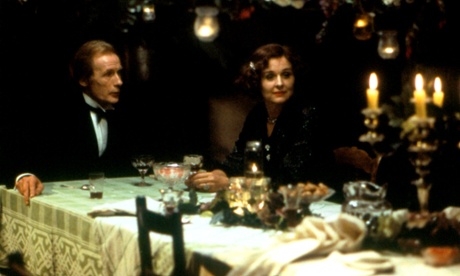
I’ve always found Dodie Smith’s 1949 compelling for its unflinching knack of probing the pushmepullyou nature of familial ties.
Marooning her fictional family, the Mortmains, in a crumbling fortress in Suffolk, Smith quite literally strips the scene back - every stick of reputable furniture has been sold. “One rather nice thing is the carved wooden window-seat - I am thankful there is no way of selling that,” says the 17-year-old Cassandra through whose bittersweet diary we see the Mortmains’ life unfold. But in cooping up her cast in a monument of uncompromising austerity, Smith leaves her characters nowhere to hide - and out tumbles all their frustration, all their affection, all their hope.
Like the castle, the family is ruined - head of the household, James Mortmain, is an influential author whose inability to write a second novel has left his children, and second wife near starvation. His eldest daughter, 20-year-old Rose, is furious that her youth is being wasted in picturesque poverty while his younger, Cassandra, in her matter of fact tones, tries to make the best of things (“my clothes don’t bear thinking about, so I just don’t think about them”). Their brother, Thomas, seems strikingly unfazed as he beavers away at his perpetual homework while James Mortmain himself holes up in the gate tower, exerting a presence that is, by turns, withering, pathetic and absurd.
In such circumstances, an author could so easily have struck a sentimental note, offered a dose of stiff upper lip stoicism - or struck out for Wuthering Heights-ian hysteria. But Smith knew her family better. The setting might be pure Brontë, but the dialogue is down-to earth. Any danger of a scene descending into twee cosiness or Gothic farce is scotched as Smith sticks the knife in, usually skewering the ethereal young stepmother Topaz. Her painfully throaty speeches, abstract paintings and ostentatious lute-playing are ridiculed by the harsh realities of the Mortmains’ hunger, cold and - thankfully - humour. “My dear beautiful stepmother’s intellectualism is very, very bogus,” says the ever-frank Cassandra. “The real Topaz is the one who cooks and scrubs and sews for us all.”
Yet it is not the penning of a new novel that eventually releases the Mortmains from their crippling plight but the arrival of another family, the Cottons, from America. Clever, funny and wealthy the two brothers - and their vivacious mother - break through the Mortmains’ defences and in doing so light the touchpaper for a painful, desperate deception.
I Capture the Castle is uncompromising in its honesty because, as Cassandra says, “a journal ought not to cheat”. And perhaps that’s why it’s always been one of my favourites. Because despite Smith’s story being, yes, romantic and perhaps more than a little unlikely, her family rings true. The Mortmains are - all of them - irritating, kind, complex and headstrong, able to love and loathe in the same breath. (“Poor Rose! It is extraordinary how fond I can feel of her really, not to mention guilty towards her - and yet hate her like poison in my imaginings,” frets our narrator.)
But perhaps most importantly, Smith’s novel reminds us that families are more than mothers, fathers, sisters, sons - each is a collection of individuals with their own hopes, dreams and fears. As Cassandra says of her father in one of her nail-on-the-head moments, “it struck me how little I know of him, or of Topaz or Rose or anyone in the world, really, except myself”. It might make for the odd argument, but as Smith so cleverly demonstrates, a family of characters can take not only the castle, but the world, by storm.

